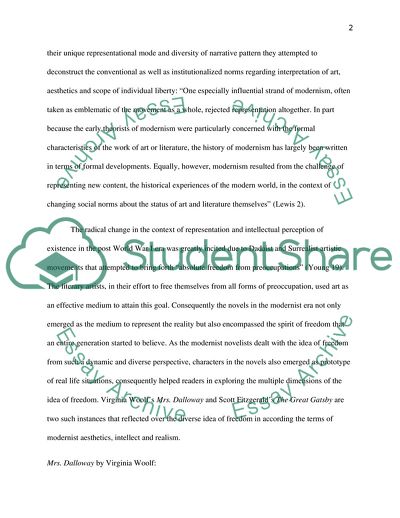Cite this document
(Understanding of Freedom in Literature Assignment - 1, n.d.)
Understanding of Freedom in Literature Assignment - 1. Retrieved from https://studentshare.org/literature/1751912-comparative-essay-of-mrs-dalloway-by-virginia-woolf-and-the-great-gatsby-by-scott-fitzgerald
Understanding of Freedom in Literature Assignment - 1. Retrieved from https://studentshare.org/literature/1751912-comparative-essay-of-mrs-dalloway-by-virginia-woolf-and-the-great-gatsby-by-scott-fitzgerald
(Understanding of Freedom in Literature Assignment - 1)
Understanding of Freedom in Literature Assignment - 1. https://studentshare.org/literature/1751912-comparative-essay-of-mrs-dalloway-by-virginia-woolf-and-the-great-gatsby-by-scott-fitzgerald.
Understanding of Freedom in Literature Assignment - 1. https://studentshare.org/literature/1751912-comparative-essay-of-mrs-dalloway-by-virginia-woolf-and-the-great-gatsby-by-scott-fitzgerald.
“Understanding of Freedom in Literature Assignment - 1”. https://studentshare.org/literature/1751912-comparative-essay-of-mrs-dalloway-by-virginia-woolf-and-the-great-gatsby-by-scott-fitzgerald.


